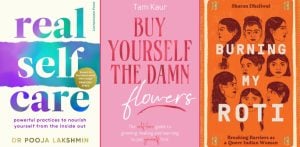“Couples may want to work on creating an environment that sparks their desire.”
A study designed by a Desi American researcher has found that more sex, surprisingly, does not boost happiness.
Tamar Krishnamurti, a research scientist at Carnegie Mellon University, reports more sexual intercourse actually results in a decline in sexual desire.
Working with Dr George Loewenstein on the study, Krishnamurti recruited 64 heterosexual and married couples as volunteers.
They split the couples – aged between 35 and 65 – into two groups by random.
While the first group was told to double the frequency of sex for 90 days, the second group received no specific instructions.
During the three-month period, both groups also had to complete a short daily questionnaire to describe the sex and their moods.
 Published in the Journal of Economic Behaviour and Organisation, the study found a 40 per cent increase of sexual intercourse in the first group.
Published in the Journal of Economic Behaviour and Organisation, the study found a 40 per cent increase of sexual intercourse in the first group.
Yet, there was a sharp fall in the participants’ energy level and sexual desire. Neither men nor women enjoyed sex as much as before.
Krishnamurti says: “The desire to have sex decreases much more quickly than the enjoyment of sex once it’s been initiated.”
She suggests couples should take a different approach to ignite the physical passion experienced at the beginning of their relationships.
She says: “Couples may want to work on creating an environment that sparks their desire and makes the sex that they do have even more fun.”
 Her colleague, Loewenstein, states the pleasure of sex diminishes ‘if you’re having sex for a reason other than because you like and want sex’.
Her colleague, Loewenstein, states the pleasure of sex diminishes ‘if you’re having sex for a reason other than because you like and want sex’.
He also highlights the enjoyment of sex comes from the overall experience, despite the number of times it happens.
Sex is undoubtedly a source of happiness for an individual or couple. But too much of a good thing could clearly take the sparks away.
Think scented candles, warm baths and enchanting music!






























































